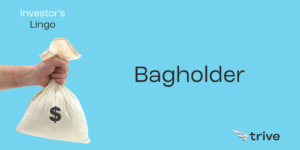Piece Written by Nkosilathi Dube, Trive Financial Market Analyst
Germany, the economic powerhouse of Europe, finds itself mired in a troubling predicament of stagnation. The second quarter has come and gone, and the German economy remains eerily still, showing no signs of rebounding from a winter recession that sent shockwaves across the globe. This stagnation cements Germany’s unfortunate status as one of the world’s weakest major economies.
This stark reality becomes more poignant when we consider that Germany stands as the solitary G7 nation that slipped into recession at the outset of this year. The following quarter, from April to June, witnessed no growth, painting a grim picture of economic inertia. The root of this predicament lies in Germany’s struggles to bounce back from last year’s winter recession, compounded by the ill winds of a global manufacturing downturn.
As we look ahead, the horizon appears no less bleak. With weakening demand for exports and the weighty burden of high borrowing costs, Claus Vistesen, chief eurozone economist, has issued a dire warning: the nation is poised to remain locked in stagnation throughout the three months ending in September.

Source: Trive, TradingView, Nkosilathi Dube
The Tax Relief Plan
Germany, the economic juggernaut of Europe, has been grappling with the formidable challenge of reigniting its sluggish economic engine. After tumbling into recession, Chancellor Olaf Scholz’s coalition has embarked on a strategic journey to revitalize the nation’s economic vitality. In a move seen as a beacon of hope for Germany’s business landscape, the government has unveiled a comprehensive tax relief plan, poised to inject vigour into a struggling economy. This initiative, valued at a substantial €7 billion annually, seeks to revitalize established companies and budding start-ups, marking a pivotal moment in Germany’s economic trajectory.
The motivation behind this economic prescription extends beyond mere fiscal measures. It is strategically crafted to encourage investment, foster innovation, and enhance productivity, aligning Germany with the global transition towards a greener economy. As the nation looks toward the future, this move serves as a testament to Germany’s commitment to sustainability, acknowledging the imperative of greener pastures in a rapidly evolving economic landscape.
The tax relief plan, a linchpin in Germany’s recovery strategy, is set to unfold over a four-year horizon, encompassing a substantial €32 billion in corporate tax cuts. These measures primarily target small and medium-sized enterprises (SMEs), recognizing their pivotal role in Germany’s economic landscape. By alleviating their financial burdens, the government aims to empower these enterprises to thrive and flourish.
While the stimulus package may appear modest in the grand scheme of Germany’s €4 trillion economy, it bears the potential to yield profound impacts. In its inaugural year, this initiative is expected to create a tax revenue deficit, with the federal government facing a €2.6 billion shortfall, the states grappling with a €2.5 billion gap, and municipalities navigating a €1.9 billion challenge. Yet, this sacrifice is envisioned as an investment in Germany’s economic resurgence.
Crucially, this reinvigorated fiscal landscape does not solely revolve around tax relief; it champions sustainability and innovation. With subsidies expected to nearly double to €67.1 billion in the coming year compared to 2021, according to Reuters, Germany is directing significant resources towards financing its green transition, signalling a resolute commitment to a lower carbon economy.
The Growth Opportunities Act, a centrepiece of this economic revival, encompasses a multifaceted approach. It not only provides tax relief projected to reach €7.56, €9.38, and €6.5 billion in 2025, 2026, and 2027, respectively but also nurtures stronger support for research and expedites the write-off process for low-value assets, empowering businesses to adapt and innovate swiftly.
Summary
This multifaceted plan not only invites the resurgence of Germany’s economic prowess but also serves as a testament to its commitment to a sustainable future. It beckons to investors and entrepreneurs alike, inviting them to partake in Germany’s journey towards renewed prosperity and a greener tomorrow.
Sources: Reuters, DW, Bloomberg, Telegraph
This material is provided for informational purposes only and does not constitute financial, investment or other advice. No opinion contained in this material constitutes a recommendation by Trive Financial Services Malta Limited or its author as to any particular investment, transaction or investment strategy and should not be relied upon in making any investment decision. In particular, the information does not take into account the individual investment objectives or financial circumstances of the individual investor. Trive Financial Services Malta Limited shall not be liable for any loss, damage or injury arising from the use of this information. CFDs are complex instruments and come with a high risk of losing money rapidly due to leverage. 73% of retail investor accounts lose money when trading CFDs with Trive Financial Services Malta Limited. You should consider whether you understand how CFDs work and whether you can afford to take the high risk of losing your money.



